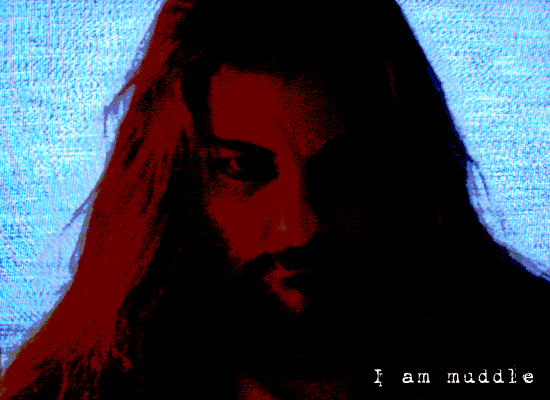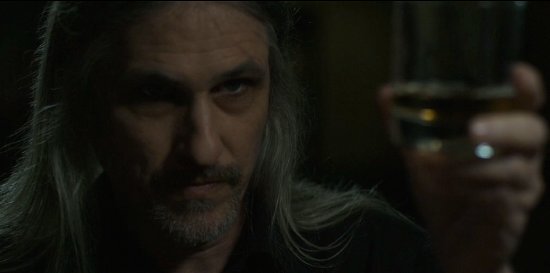The Pillars of the Earth , by Ken Follett, is a big book, almost 1000 pages in the edition I read, containing a story that spans generations. I wasn’t quite sure what to expect, and when in the prolog someone invokes a curse and everyone takes it very seriously, I got the feeling I was reading a fantasy novel, which was not the case. There is an undercurrent of magic implicitly believed by the characters, but it rarely plays a central role. The curse is a good touch, but in the end does not inform the actual story very well.
, by Ken Follett, is a big book, almost 1000 pages in the edition I read, containing a story that spans generations. I wasn’t quite sure what to expect, and when in the prolog someone invokes a curse and everyone takes it very seriously, I got the feeling I was reading a fantasy novel, which was not the case. There is an undercurrent of magic implicitly believed by the characters, but it rarely plays a central role. The curse is a good touch, but in the end does not inform the actual story very well.
Once I got past my misconceptions based on the prolog I began to enjoy the lives of the main characters. The piece is historical fiction, set in England in the second half of the 12th century, starting with the death of King Henry I, through political machinations and civil war, and into the period of relative peace that followed the coronation of Henry II. The conflict is never central to the story, but it is always there, affecting the lives of the people in the story in unpredictable ways.
For instance, a lot of people starve to death. I guess that was pretty common in those days. At the start one of the key families is starving, the mother dies in childbirth, and the baby is abandoned because the remaining family has no way to feed it. So it goes. Happily the baby is rescued by a monk, and is raised in a monastery. By an interesting set of circumstances, the monastery is in charge of a cathedral that needs to be rebuilt, and the kid’s father – the one who abandoned him in the forest – is the one in charge of the rebuilding.
There were some pretty big coincidences in this book, and as a rule I don’t like stories that are too dependent on fortune of this sort. In this case, they didn’t bother me too much. Perhaps the very low population of England at the time made repeat chance meetings more likely. There were a couple of times I thought the author pushed his luck (or his characters’ luck) a little too far, but most of those meetings were not key plot points. There is simply a group of people all tangled together, and the snarls of one generation affect the next.
I am not sure how historically accurate the story is (more on that later), but man, times were tough back then. He applies age-indicating adjectives to his characters that imply a lifespan not too much shorter than ours, but people find a lot of ways to die prematurely. Starvation I mentioned before, but the people who live in the (apparently fictional) village of Kingsbridge endure a cathedral falling on them, killing more than a hundred, and on top of that plain old violence.
There is violence in this book, both wholesale and personal. A city is burned while soldiers hack down the inhabitants. A work crew is massacred. On the personal side there is torture and rape, along with good old murder. The violence can be graphic at times, but in general I thought it fit with the story. There are people who really, really, don’t like each other, and it’s important to understand why, to feel the evil in your bones the same way the characters do.
As I said before, it’s a big book. A thousand pages. Honestly, I really don’t think there was enough story there to fill that many pages. At some points I found myself saying, “yeah, yeah, let’s get on with it.” Most of the time it was just extra setting that was interesting from a historical standpoint but in the end didn’t help the story. There were other cases, however, that were more annoying.
One general pattern of storytelling is “Someone has a problem. Their first attempt to fix the problem makes it worse. The second attempt fails. All attempts fail until the last act of desperation finally succeeds.” It’s a good pattern; one I should pay more attention to. However, when you read page after page of uninterrupted “then he tried this, then he tried this…” it gets old. Rather than building suspense, I found myself tempted to skip to the next chapter, since all these attempts were to solve a minor problem in the grand scheme of things. Is there an axiom here? Not sure, but for quickly-resolved plot points (Jack got out of the burning church), maybe one should limit the number of consecutive failures, unless there’s an unexpected consequence to one of the failures that matters later. Otherwise, let me smell Jack’s hair burn, help me feel his panic (I didn’t), then get him out of there.
Or Kill Jack. Follett is not above doing something like that, which is cool. That’s what kept me from jumping ahead for that particular dilemma. Still, live or die, the point is going to be resolved quickly, and all that other stuff just gets in the way.
As usual I’ve spent more time talking about the writing than the story. It’s what I do (apparently). The story itself is excellent, an intricate tangle of people who all have their own goals and their own ways of reaching them. People we like don’t like each other. Good people do bad things (though only rarely). Virtue is rewarded, but that can take a long, long time. A new cathedral is built and doesn’t crush the congregation to death.
At the end of the book, I had a lot of questions about the time the story was set in and some of the cities and churches featured in the book. I was also curious about the politics of the time. How much of the novel is fact and how much is fiction? Would it kill any of these authors to put in a little appendix about the times and some suggested reading? If Follett had chopped out a couple hundred pages of blah blah blah and replaced it with twenty pages of “The cathedral in the story is not real, but it’s based on…”, maybe a thumbnail history of the politics and the tension between church and the English monarchy, and things like that, I would have been extremely grateful. C’mon, Ken, you did all that research, why not share some of your favorite sources? (To be fair, he does share a wee bit of that information on his crassly commercial Web site.)
Overall, I’d say that if you have the time to devote to a big, meaty story, you could do a lot worse than this one.
Note: if you use the above link to buy this book (or a Kindle , or a new car), I get a kickback.
, or a new car), I get a kickback.
Sharing improves humanity:








